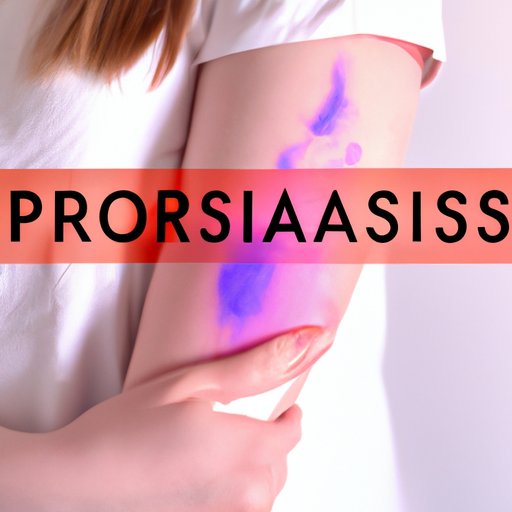Introduction to Psoriasis
Psoriasis is a chronic skin disease that affects millions of people around the world. It’s a disorder that causes skin cells to build up and form patches that can be red, itchy, and scaly. There are different types of psoriasis, including plaque psoriasis, guttate psoriasis, and pustular psoriasis. Plaque psoriasis is the most common type.
According to the World Health Organization, psoriasis affects up to 3% of the global population. In the United States, about 7.5 million people have psoriasis.
Genetic Factors
Psoriasis has a genetic component. Research indicates that about one-third of people with psoriasis have a family member with the disease. Scientists have identified several genes that are associated with psoriasis. However, having the genetic predisposition to psoriasis doesn’t mean that a person will inevitably develop the disease.
People with a family history of psoriasis have a higher risk of developing the disease than those without a family history. The risk is higher if both parents have psoriasis.
Immune System and Environmental Factors
Psoriasis is an autoimmune disease. It occurs when the immune system mistakenly attacks healthy skin cells. As a result, the skin cells grow too quickly and form patches. The exact cause of immune system dysfunction in psoriasis is not fully understood, but it’s thought to be related to a combination of genetic, environmental, and immune factors.
Environmental factors like stress, cold weather, skin injuries, and infections can trigger psoriasis outbreaks. Exposure to chemicals like cleaning agents, hair dyes, and perfumes can also affect psoriasis. Smoking and alcohol consumption can worsen psoriasis symptoms.
Infections and Injuries
A skin injury or infection can trigger or exacerbate psoriasis. The immune system overreacts to the injury or infection, causing inflammation that leads to psoriasis flare-ups. Strep throat, for example, can trigger guttate psoriasis, which is characterized by small red dots on the skin.
Skin injuries like cuts, scrapes, and burns can also trigger psoriasis. This is known as Koebner phenomenon.
Medications and Lifestyle
Certain medications can trigger psoriasis or make symptoms worse. These include beta-blockers, lithium, antimalarials, and non-steroidal anti-inflammatory drugs (NSAIDs).
Unhealthy lifestyle choices like a poor diet, obesity, and lack of exercise can contribute to developing or worsening psoriasis.
Treatment Options
There is no cure for psoriasis, but there are several treatment options that can help manage the disease. Treatment depends on the severity of the disease and the patient’s overall health.
Topical ointments like corticosteroids, vitamin D analogues, and coal tar can help reduce inflammation and slow down skin cell growth. Light therapy, also known as phototherapy, involves exposing the skin to ultraviolet light. This can help reduce inflammation and slow down skin cell growth.
Systemic medications like methotrexate, cyclosporine, and biologic agents can help reduce inflammation and regulate the immune system. These medications are usually prescribed for moderate to severe cases of psoriasis.
There are also various ways to care for and manage psoriasis at home, such as keeping the skin moisturized, avoiding triggers, and wearing cotton clothing.
Conclusion
Although there is no cure for psoriasis, there are many ways to manage the disease and improve quality of life. Research is ongoing, and there may be more effective treatments in the future. If you have psoriasis, it’s important to seek professional help to manage your symptoms and overall well-being.
Psoriasis can be challenging, but it’s possible to have a good quality of life with proper care and treatment.
